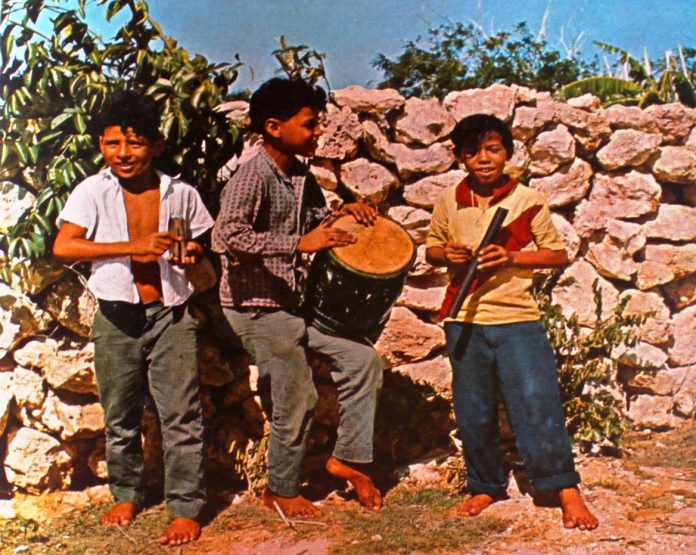
Article by Etnia Nativa call us 592 2702 and book your experience!
Aruba`s traditional New Year’s celebration. We do not know exactly when the rhythm of Dande arose in Aruba, it is estimated that it was around the year of 1880 that it really start to be heard all over the island
From the stories that have been passed down through generations we know that there is a supposition that the Dande was influenced by Arubans returning from Cuba and coinciding with the times when the Aruban people traveled to the island to work in the fields. The truth is that this particular rhythm does not exist anywhere else in the world.
The word Dande derives from “dandare” which means to go from one place to another. As for the expression “Ay nobe” it would be the result of the: Año Nuevo (New Year) of the Spanish language since there is no word that in our Papiamento language has a relationship with this expression.

The custom indicates that immediately after the clocks struck 12:00 pm and the New Year was welcomed, the musical group passed house to house singing to the rhythm of giving and with the song spreading good wishes to the inhabitants. The musical group consisted of a drummer, a Wiri player, and a singer. Over the years, instruments such as the “cuarta”, guitar, the mandolin, accordion and even the violin were incorporated. Many times, others on the back of a donkeys, went to visit relatives first, infecting each home with joy and good wishes for the year that has just begun, then continued through the houses of friends and acquaintances.
As musicians were given great respect, the musical group would play at the limits of the houses they visited, just at the entrance, or in the front yard. Now if the owners of any particular house invited them to come in, they will continue playing inside each home. If the owner of the house did not want to receive them, they did not insist and went to the next house.
When the owner of the house gave his approval for the group to enter, the singer, as a sign of respect for the house and the family, would take off his hat. In this time there is a belief that the purpose of removing the hat was to receive money which is completely wrong.
The custom indicates that the singer begins to sing to the owner of the house, then to the lady and successively to the children even the youngest.
We must emphasize that the Dande rhythm, despite being written in six eight just like the tomb rhythm, has its original rhythm that is given by its own instruments, as in these times the bass that gives it its original touch. The visits of the Dande group began with the New Year and lasted until January 6, the day in which the Catholic Church celebrates the feast of the “Dia di Tres Rey “(Three Wise Men of the East).
We propose you one social encounter & give you more reasons to love Aruba! This unforgettable adventure gets you into a real Aruba’s home where you can capture your destination in both a memorable and immersive way. Visit us, mention this column and take home a native gift! Appointment is required: etnianativa03@gmail.com or WhatsApp at 297 592 2702 for an exclusive and insiders’ experience.












